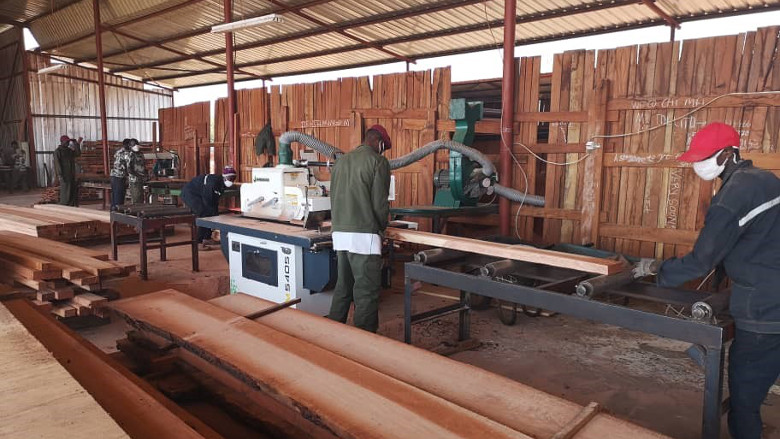LUSAKA, July 16, 2019 – Zambia must harness its natural resources, especially renewable capital such as forests, agricultural land and water, to promote sustainable growth, according to the new World Bank economic analysis for the country.
The Zambia Economic Brief: Wealth Beyond Mining: Leveraging Renewable Natural Capital, notes that over the long-term, Zambia’s growth strategy will depend on improved productivity and the sustainable management of the country’s natural capital. In 2014, natural capital represented 40% of Zambia’s total wealth, valued at $644 billion; renewable resources constituted 73% of this natural capital.
“Diversifying the Zambian economy beyond minerals will entail leveraging the country’s renewable natural resources to produce continuous benefits in the long term,” said Ina Ruthenberg, the World Bank Country Manager for Zambia.
Zambia has made progress by committing to better and more strategic management of its renewable natural capital by joining the Wealth Accounting and Valuation of Ecosystem Services Global Partnership (WAVES) in 2017. WAVES aims to promote sustainable development by ensuring that natural resources are mainstreamed into development planning and national economic accounts. The report notes that the WAVES initiative is an important opportunity for Zambia to start to identify where diversification of the economy could come from and identifies the pathway for the country to diversify. For example, the report recommends the country transform its natural capital into other forms of assets—specifically human, physical and digital capital—and urban development.
The government is also utilizing Natural Capital Accounting (NCA) to guide sustainable investments that preserve natural resources that the most vulnerable people depend on the most.
Economic Outlook
According to the report, public debt vulnerabilities have heightened, largely driven by fiscal loosening, shift in borrowing patterns, and a weaker external environment. The country’s prospects for a stronger recovery are repressed by various domestic policy challenges.
Despite a modest pick-up in 2018, the current outlook remains subdued by exogenous and domestic policy challenges. Domestic policy uncertainties largely relate to government’s need to implement a large fiscal consolidation to reign in on the growing debt burden and create fiscal space for inclusive growth; and commitment to implementing reforms in the energy sector that would catalyze private sector activity across various sectors.
Risks to exogenous shocks relate to low copper prices, low rains and the spill-over effects of the cyclones that have affected Zambia’s neighbors. In the absence of policy adjustments, growth is projected to decline to 2.5% in 2019 from 3.7% in 2018, and to remain below 3% over the medium term. There is a need to begin to address the current economic situation with a huge sense of urgency. Fiscal consolidation must be done like yesterday and the country needs to focus more on sustainability and efficient investment.
The report shows that Zambia’s recovery in 2019 and the medium-term will be tepid, weighed down by exogenous risks and policy challenges, with important poverty and vulnerability implications.
“Going forward, Zambia should consider front-loading fiscal consolidation, as that will be key to reversing course on the rising debt burden and freeing up resources to other important public spending, including on social protection,” said Samson Kwalingana, World Bank Senior Economist for Zambia. “Enhancing debt management, budget controls, and improving the operational and financial viability of key State-Owned Enterprises (SOEs) like ZESCO, could jumpstart Zambia’s growth rates to the levels envisioned under the Zambia Plus and Seventh National Development Plan.”


